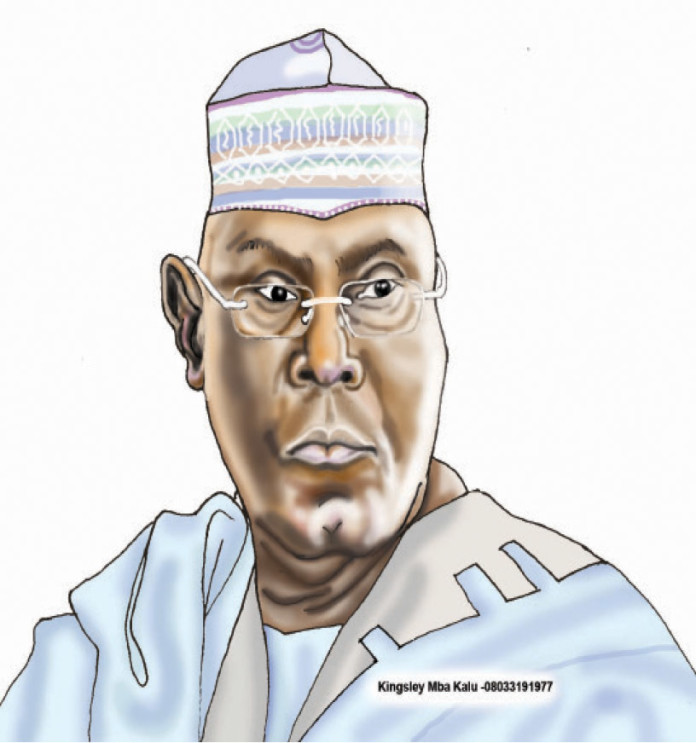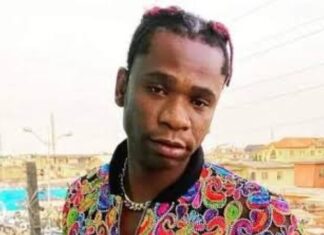The recent flag-off of the construction of an automated animal feed production plant by Atiku Abubakar’s farm is an encouraging attempt to create agriculture value chain, which will also encourage ranching and curtail the menace of cattle grazing, writes SAM NWOKORO
Former Vice President Atiku Abubakar must be a man with vision. He seems to be a good listener, especially to happenings around him.
He has not been found spattering in the mud of controversies with busybodies since he left public office nine years ago. Yet he, more often than those currently manning the state, would be among the first to condole with the bereaved family of a valuable compatriot. He is ever attentive to how the ship of state is being driven, though he was one of the pillars that brought the current ruling All Progressives Congress (APC) into being.
Atiku, as he is fondly addressed, is different things to different people: an astute politician, a public servant, etc. The man has maintained a stoic, stay-by-the-side attitude and by that conduct has relatively mellowed political tempers in the land.
The former number two citizen recently spewed some milk of patriotism from his inside.
Tackling animal feed problem
One of the problems in Nigeria’s effort to attain protein sufficiency is the quality of meat Nigerians eat. Scientists have disclosed that Nigerians consume poor quality meat, because what the animals themselves are fed with adds little or nothing to their health. Even at that, those poor quality feeds, largely grass, are difficult to come by these days due to desertification of most parts of Northern Nigeria. Consequently, the nomads who rear the cattle are left to endanger both their lives and those of their herds as they wander long distance in search of pasture and water for their cattle.
The dangers posed by wild animals and rustlers forced the herders to arm themselves, since they must give account to their masters.
To say that the herders are inconsequential in the developmental matrix of the agriculture sector is to run away from what calls for urgent and effective mechanism to modernise their operation, for them to produce enough meat to feed Nigeria’s about 170 million people at a time the scarcity of foreign exchange is making availability of imported meat more expensive.
According to the World Health Organisation (WHO), the country’s population is protein-deficient.
Here lies the essence of Atiku’s multi-million dollars automated feed mill which was recently flagged off in Niger State.
Feed mills to the rescue
To many, what the former Vice President has done in the auto feed mill was a timely intervention in the face of the rampaging Fulani herdsmen.
In 2013, a director in the Livestock Department of the Federal Ministry of Agriculture, Joseph Nyager, said government was focusing on six priority value chains of meat production (cow, pig, sheep, goat, poultry and dairy). He disclosed that the ministry was collaborating with the private sector to strengthen the National Animal Production Research Institute (NAPRI) to facilitate the production of day-old chicks at cheaper prices.
“We are collaborating with FrieslandCampina WAMCO Nigeria Plc to facilitate another milk collection centre in Oyo and the Federal Capital Territory (FCT). These steps will reposition the beef industry to process and provide wholesome meat and milk products at affordable prices for Nigerians and for export,” he said.
Professor Francis Ahamefule, Department of Animal Science, Federal University of Agriculture, Makurdi (FUAM), said the country must step up efforts to discourage the traditional production method and embrace intensive livestock production. “Conscious efforts should be made to settle the nomadic pastorals who predominantly are in control of more than 90 per cent of Nigeria’s livestock. Settling them would create positive awareness towards accepting best practices in animal agriculture,” the don added.
And the Registrar of Nigerian Institute of Animal Science (NIAS), Godwin Oyediji, observed that Nigeria imports $1 million worth of milk for local consumption daily. “The current parlous state of our production structure, which is in the hands of nomads, is unsuitable. We sink so much money to import those products that we can produce locally. If we can effectively harness our livestock potentials, there is no doubt that the nation’s 170 million (people) offer a ready market for farmers and investors. So we must explore meat production as a viable business,” he said.
Project of inestimable value
According to the former Vice President, the establishment of feed mill factories for a wide range of livestock has the ability to help defuse the conflicts between herders and farmers currently costing too many lives and livelihoods in Nigeria.
The Turaki Adamawa, who spoke in Abuja during the ground-breaking ceremony of Rico Gardo animal feed factory, to be sited on five hectares of land at Idu Industrial District in the FCT, described the venture as a partnership between his farm and a world-class firm in Portugal that specialises in feed production.
Rico Gado Nutrition Nigeria, which is a limited liability company, was incorporated in 2013 as a joint venture agreement between GeseDerdirabe Holdings of Yola, Adamawa State, owned by Atiku Abubakar, and Rico GadoNutracao, S.A.
According to Atiku, the first Rico Gardo factory, which was commissioned in January 2015, in Yola, is already reducing the expanse of land required to feed cattle.
His words: “The Yola mill produces 20 tonnes per hour of carefully balanced and locally sourced quality fodder for a wide range of livestock, including poultry, cattle, goats and horses.”
A noble man
Atiku comes across as a consummate politician who knows when to move, when to slow down and when to dodge. He takes whatever comes his way, and for much part of his political life played the politics of principles, never wanting to see any position or electoral contest as a do-or-die affair.
This much he demonstrated throughout his tenure as Nigeria’s Vice President between 1999 and 2007. By hindsight, it is a measure of the regard fellow politicians have for Atiku that when he won election in 1999 as governor, he was transmuted to the position of Vice President by popular acceptance of party men. Notwithstanding the schism that took place between him and the henchmen in the Peoples Democratic Party (PDP) over his insistence that Obasanjo should serve only one term, as reportedly agreed within the PDP then, experts have since come to the conclusion that the man was only insisting on rules laid down to guard party politics. Due to the inability of PDP members to stick to their own rules that led to its implosion.
Any serious political party that understands the essence of a god following would still see as Atiku an asset.
His out-of-service life has been most utilitarian and egalitarian for the fatherland. He has been risking his life in Boko Haram-infested Borno to improve on his agricultural venture.
Not oblivious of his position as an elder statesman, Atiku has contributed immensely in the provision of humanitarian aids to the internally-displaced persons (IDP) in Borno and beyond. His elite school, the ABTI-American University, has been churning out first class graduates in critical areas of national developmental need like technology.
His pro-western intellectualism and his cute spirit in the discernment of social issues in a fiercely anti-western enclave like North East reveals so much of the clean spirit this Muslim leader carries in his bowels.
Atiku was born on November 25, 1946 to a Fulani trader and farmer, Garba Abubakar, through his second wife, Aisha, in Jada village of Adamawa. Atiku became the only child of his parents when his only sister died at infancy. Atiku’s father and mother divorced before his father died in 1957, and his mother re-married. Eventually, his mother died in 1984 of heart attack.
Atiku could not start school when he ought to because his father was opposed to him obtaining western education. His father was consequently arrested and jailed until he paid a fine. Atiku later got registered into Jada Primary School at the age of eight. After his primary school, he was admitted into Adamawa Provincial Secondary School, Yola, in 1960. He finished his secondary education in 1965 after he made Grade 3 in the West African School Certificate Examination (WASCE).
He then proceeded to Nigerian Police College, Kaduna. He left the college for a work as Tax Officer in the Regional Ministry of Finance. Later he got admission to study at the School of Hygiene, Kano, in 1966. In 1967, he graduated with a Diploma. That same year, he was admitted for a Law Diploma at Ahmadu Bello University (ABU) on a scholarship. He graduated in 1969 and got employed in the Nigerian Customs Service (NCS) that same year.
The Turaki Adamawa married Titilayo Albert in December 1971, in Lagos, and she gave him four children: Fatima, Adamu, Halima and Aminu. In January 1979, he married Ladi Yakubu as second wife, and they had six children: Abba, Atiku, Zainab, Ummi-Hauwa, Maryam and Rukayatu. In 1983, he married his third wife, Princess Rukaiyatu, daughter of the late Lamido of Adamawa and she gave birth to Aisha, Hadiza, Aliyu, Asmau, Mustafa, Laila and Abdulsalam. In 1986, he married Fatima Shettima and she gave birth to Amina (Meena), Mohammed and two sets of twins (Ahmed and Shehu, Zainab and Aisha), and Hafsat. He also married a younger wife called Jennifer Iwenjora who later became Jamila Atiku-Abubakar, and she gave birth to Abdulmalik, Zara and his youngest child, Faisal.
Atiku later proceeded for further studies at both Police College and Customs Training School, and thereafter manned the Idi-Iroko, a border town between Nigeria and Benin Republic, then under Lagos Airport, Apapa Ports, and Ibadan Customs Command between 1974 and 1979.
He moved to the North and served in the Kano Command in 1976, then to Maiduguri (as Area Comptroller) in 1977, from there to Kaduna in 1980 and back to the Apapa Ports in 1982. In 1987, Atiku was promoted to the post of a Deputy Director in charge of Enforcement and Drugs. In April 1989, aged 43, Atiku voluntarily retired from Customs.
He is active in different businesses, including real estate, agriculture and trading. Atiku’s business also includes a beverage manufacturing plant in Yola.
He was active throughout the Third Republic politics and was popular on the various constitutional conferences that ushered Nigeria back to democratic rule in 1999. He became Obasanjo’s running mate and served until 2007 as Nigeria’s second most powerful man. He was popular in the struggle that frustrated Obasanjo’s third term bid, which pitted him with the Ota farmer.











